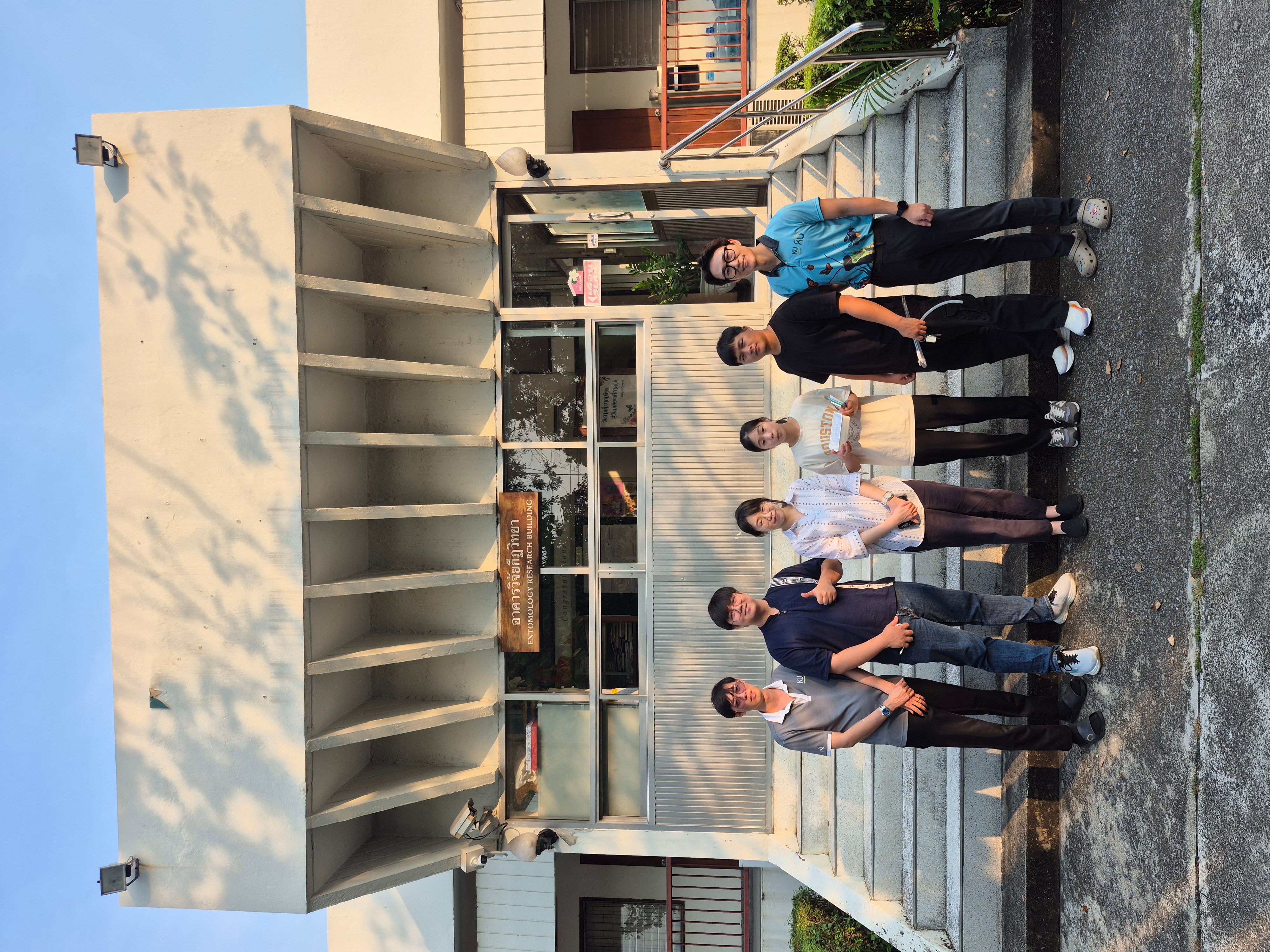 (February 19–20, 2025) Training Course on Mosquito Rearing and Identification (1/2)
(February 19–20, 2025) Training Course on Mosquito Rearing and Identification (1/2)
The Research and Lifelong Learning for Urban and Environmental Entomology (RESCUE) program successfully conducted its first training course of the year on mosquito rearing and identification.
Trainees from Seoul National University, including Assist. Prof. Kim and Dr. Lee, gained hands-on experience in force mating—an essential skill for increasing the population of field-collected mosquitoes in laboratory settings.
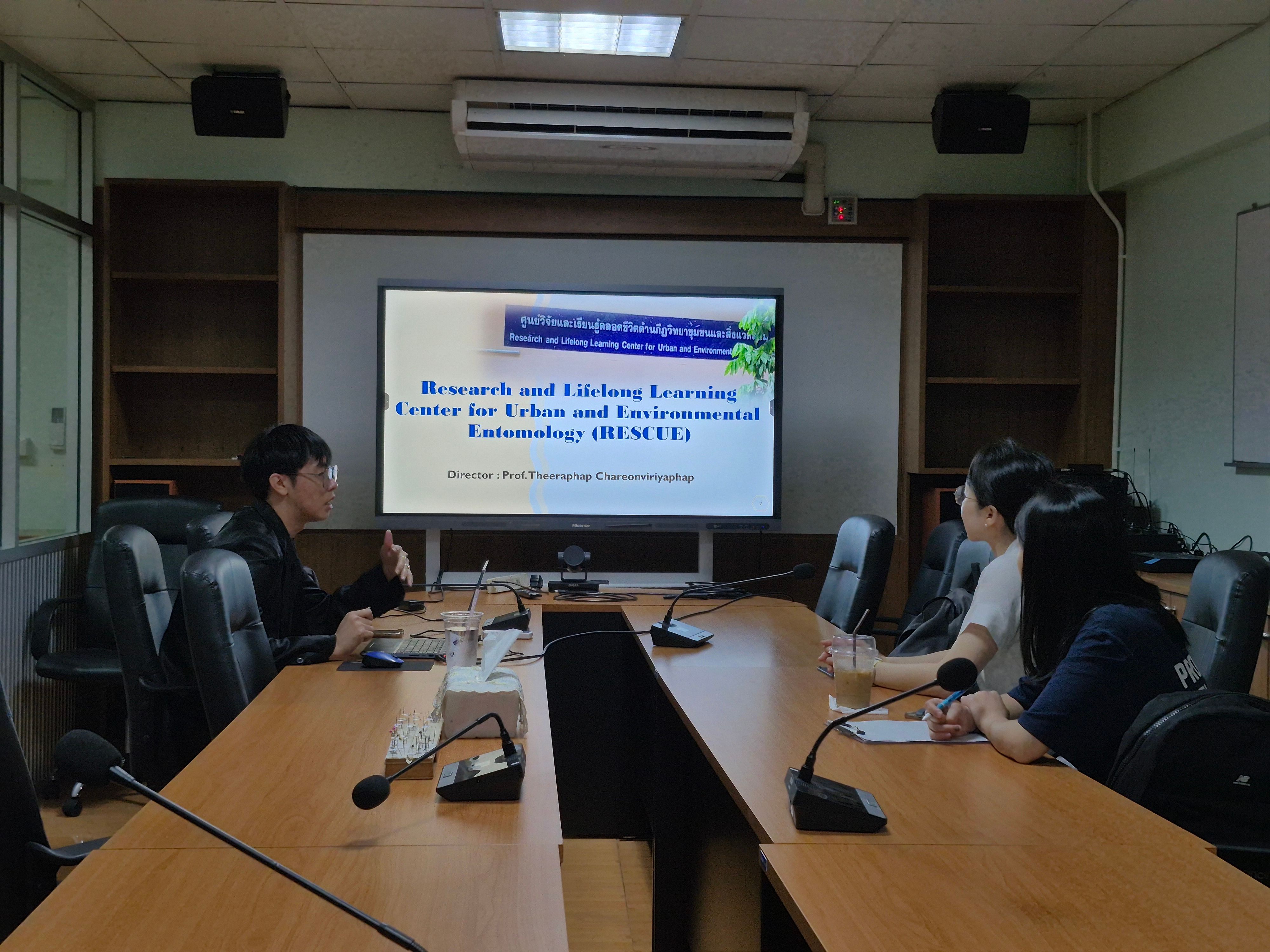 Day 1: Orientation and Mosquito Insectarium Tour
Day 1: Orientation and Mosquito Insectarium Tour
Mr. Max opened the session with an overview of RESCUE and the mosquito insectarium, explaining the objectives and structure of the two-day training course. The program was designed to address the specific needs of the trainees, with a particular focus on force mating techniques.
Following the orientation, Mr. John guided the trainees through the step-by-step process of mosquito lab culturing. His in-person guidance provided valuable insights into the practical aspects of maintaining a successful mosquito colony.
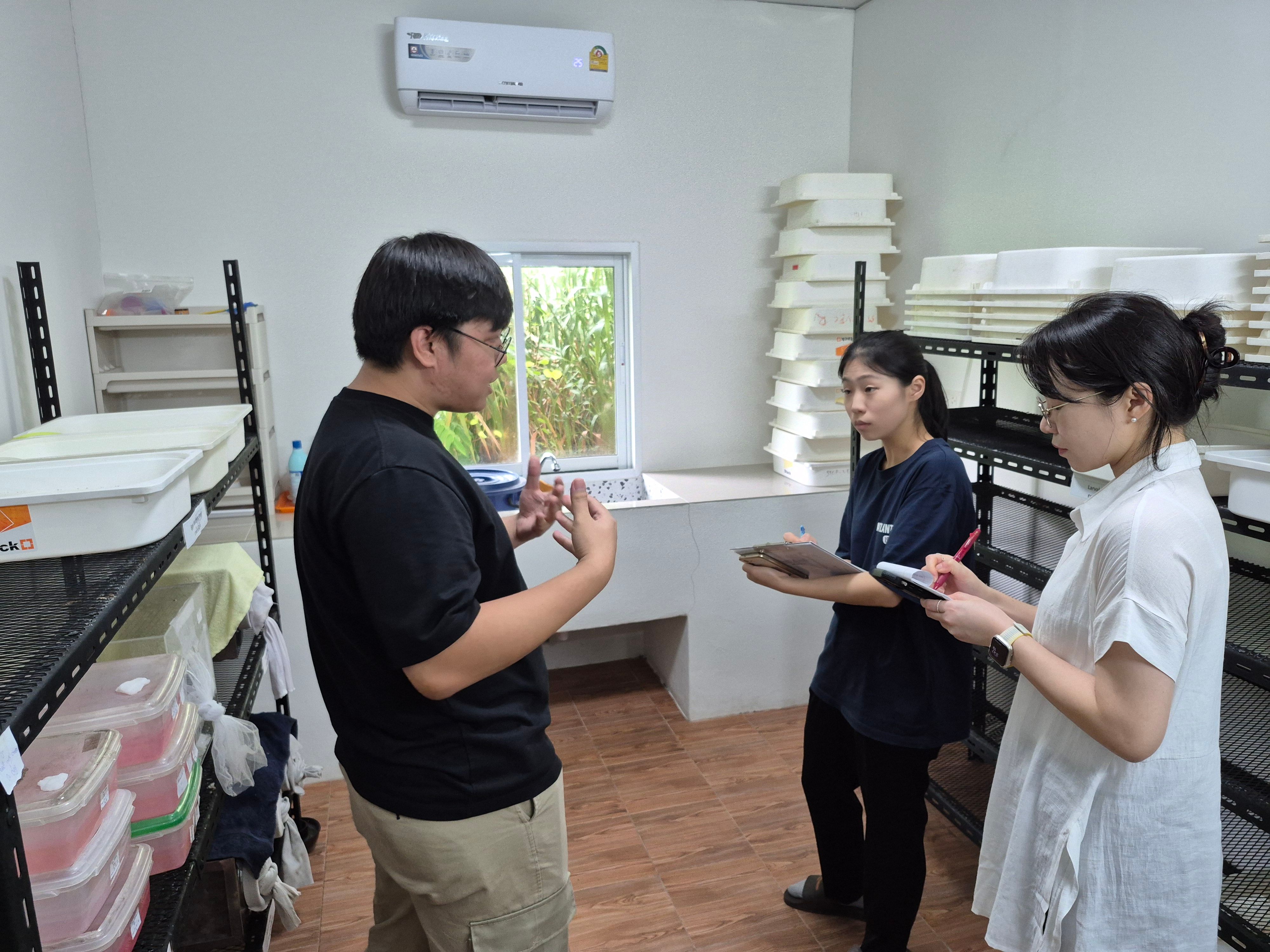 During the session, Mr. John emphasized that one of the key factors in achieving a high yield of newly emerged adult mosquitoes lies in precise larval feeding. He highlighted the importance of water quality, particularly for Anopheles spp., and demonstrated how to provide the optimal amount of larval food.
During the session, Mr. John emphasized that one of the key factors in achieving a high yield of newly emerged adult mosquitoes lies in precise larval feeding. He highlighted the importance of water quality, particularly for Anopheles spp., and demonstrated how to provide the optimal amount of larval food.
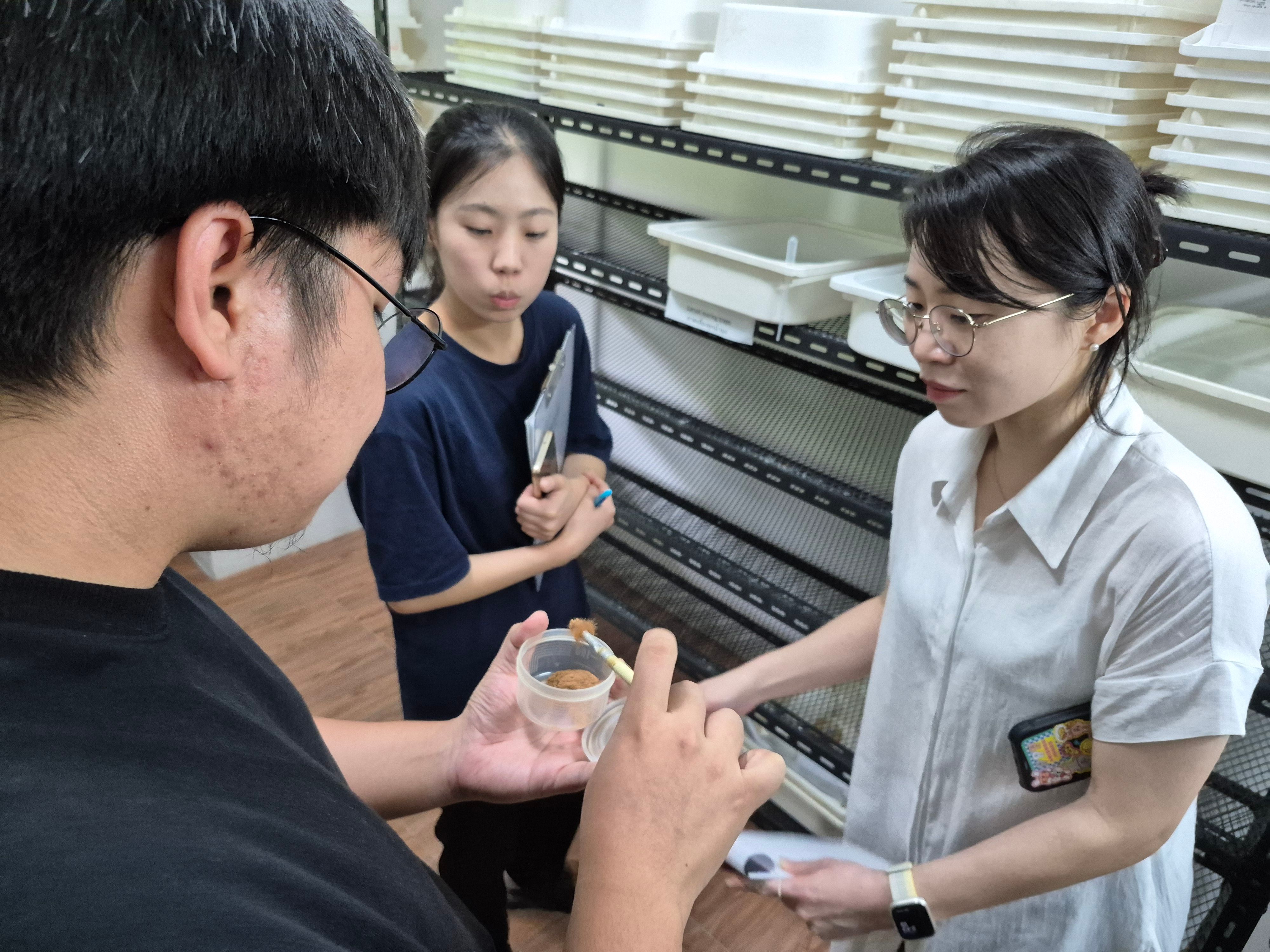 Hands-On Practice: Preparing Mosquito Larval Food
Hands-On Practice: Preparing Mosquito Larval Food
Trainees had the opportunity to prepare finely powdered mosquito larval food using a traditional Thai grinding tool instead of electric devices. This method, passed down through generations, offers a simple yet effective alternative for mosquito rearing.
 Sometimes, basic yet practical knowledge can be the key to solving complex challenges in laboratory mosquito culturing. Recognizing this, the trainees eagerly took notes, recorded each step, and engaged in in-depth discussions.
Sometimes, basic yet practical knowledge can be the key to solving complex challenges in laboratory mosquito culturing. Recognizing this, the trainees eagerly took notes, recorded each step, and engaged in in-depth discussions.
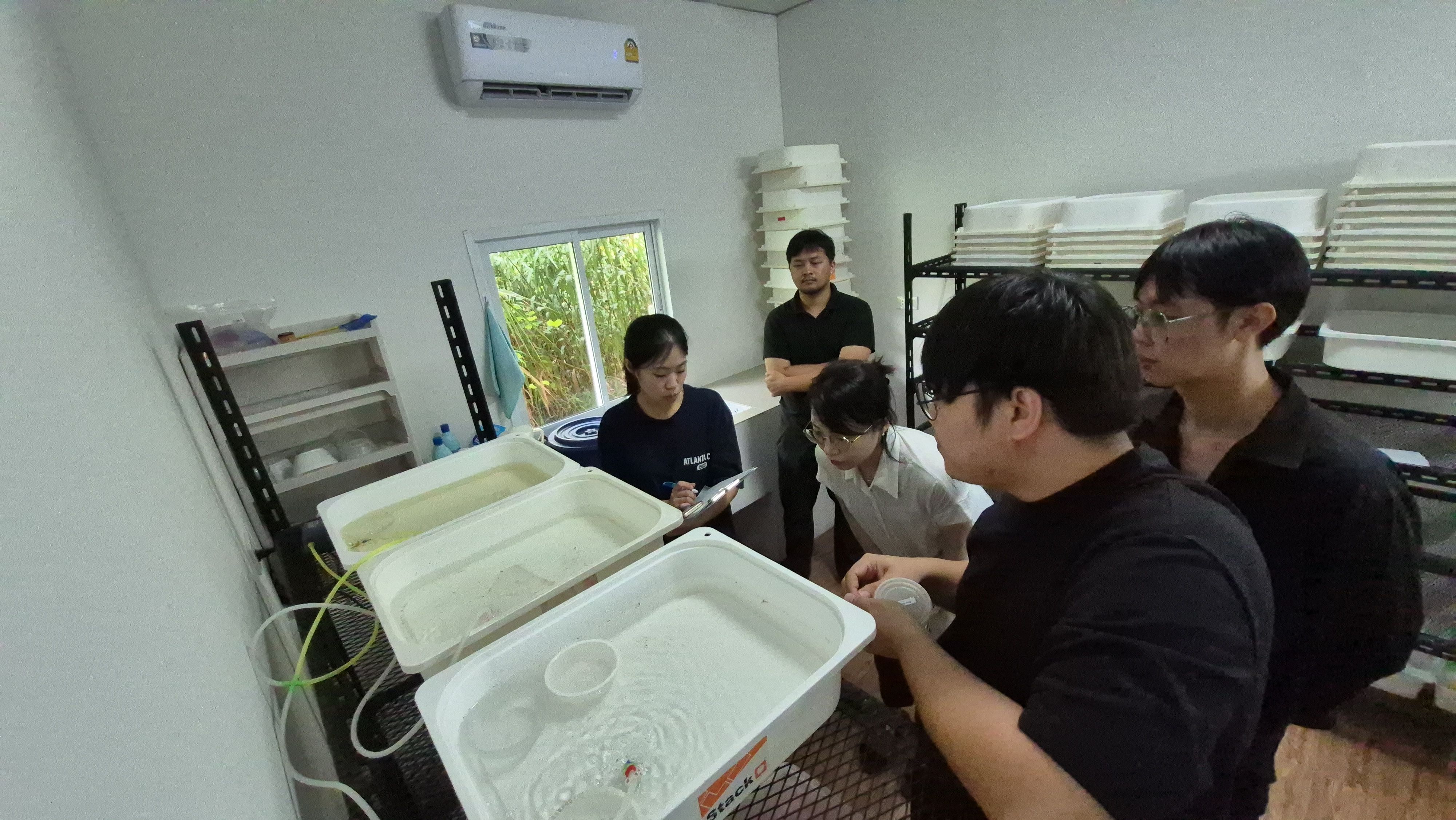 The Value of In-Person Training
The Value of In-Person Training
The highlight of the training was the direct interaction with local Thai researchers. By engaging in open discussions, participants and trainers were able to exchange experiences, ask relevant questions, and explore solutions to real-world challenges. These meaningful conversations not only enhanced technical skills but also paved the way for potential research collaborations.
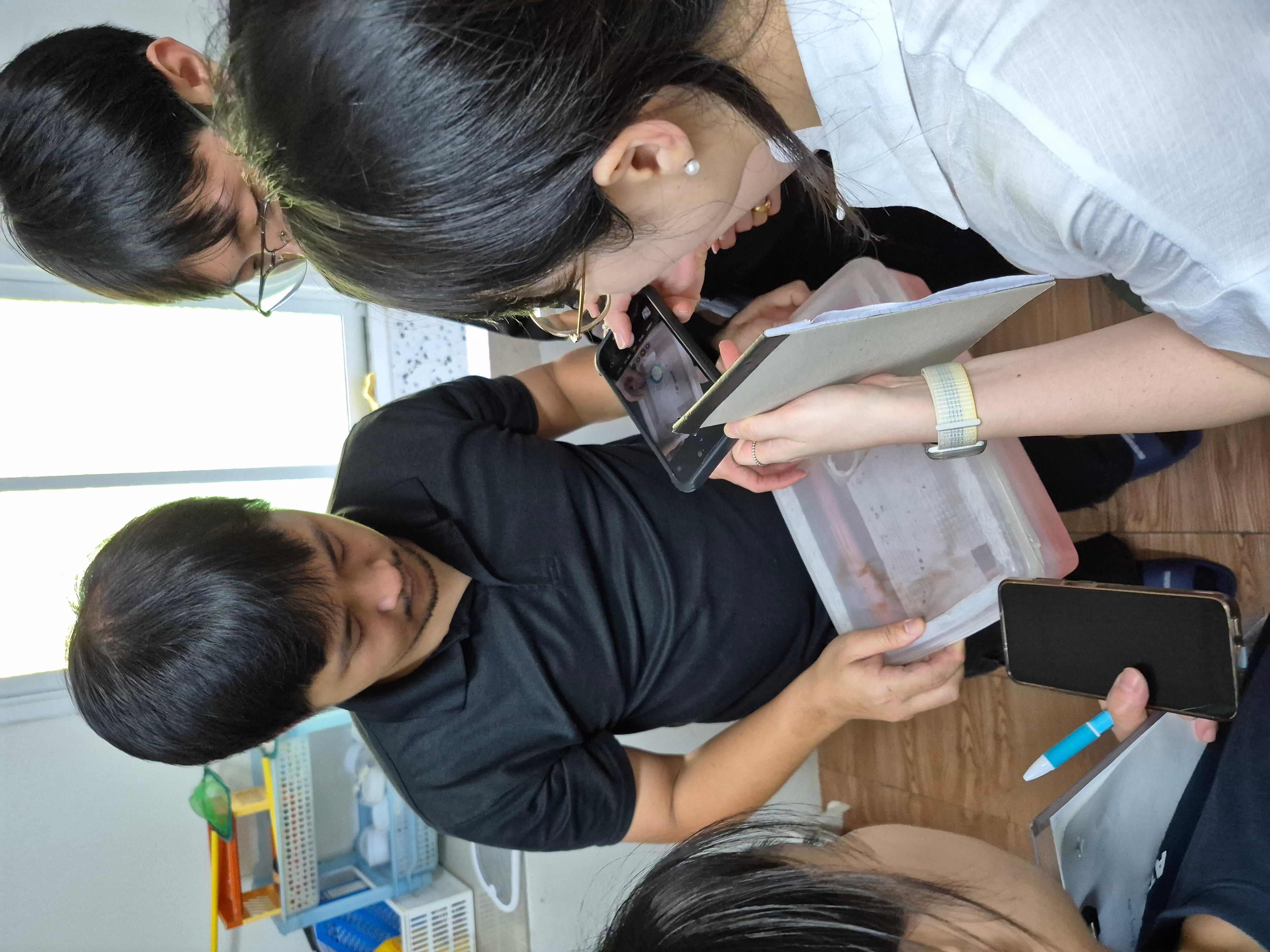
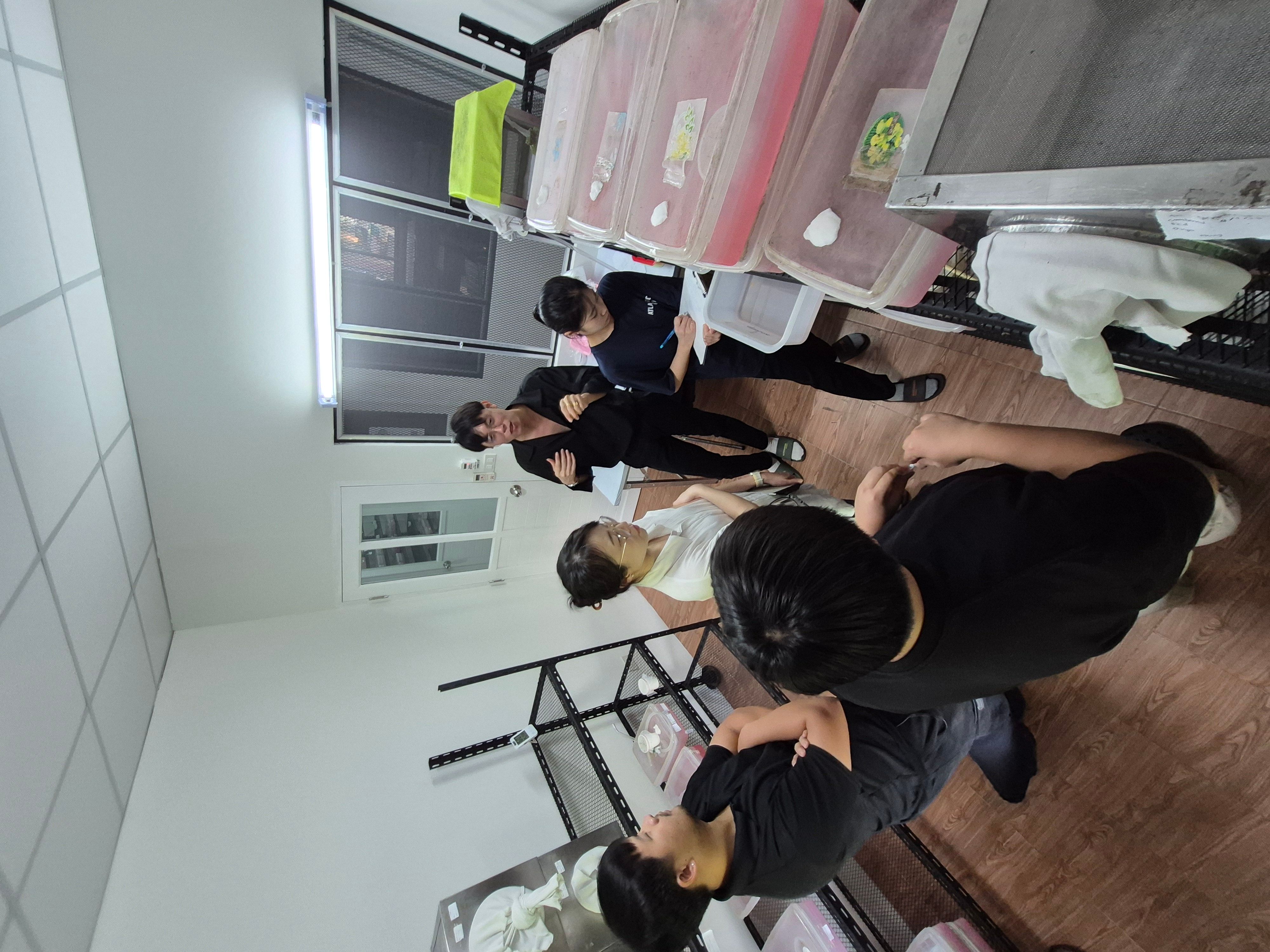 Day 1 concluded with a full-day insectarium visit and intensive knowledge-sharing session, setting a strong foundation for the following day's activities.
Day 1 concluded with a full-day insectarium visit and intensive knowledge-sharing session, setting a strong foundation for the following day's activities.
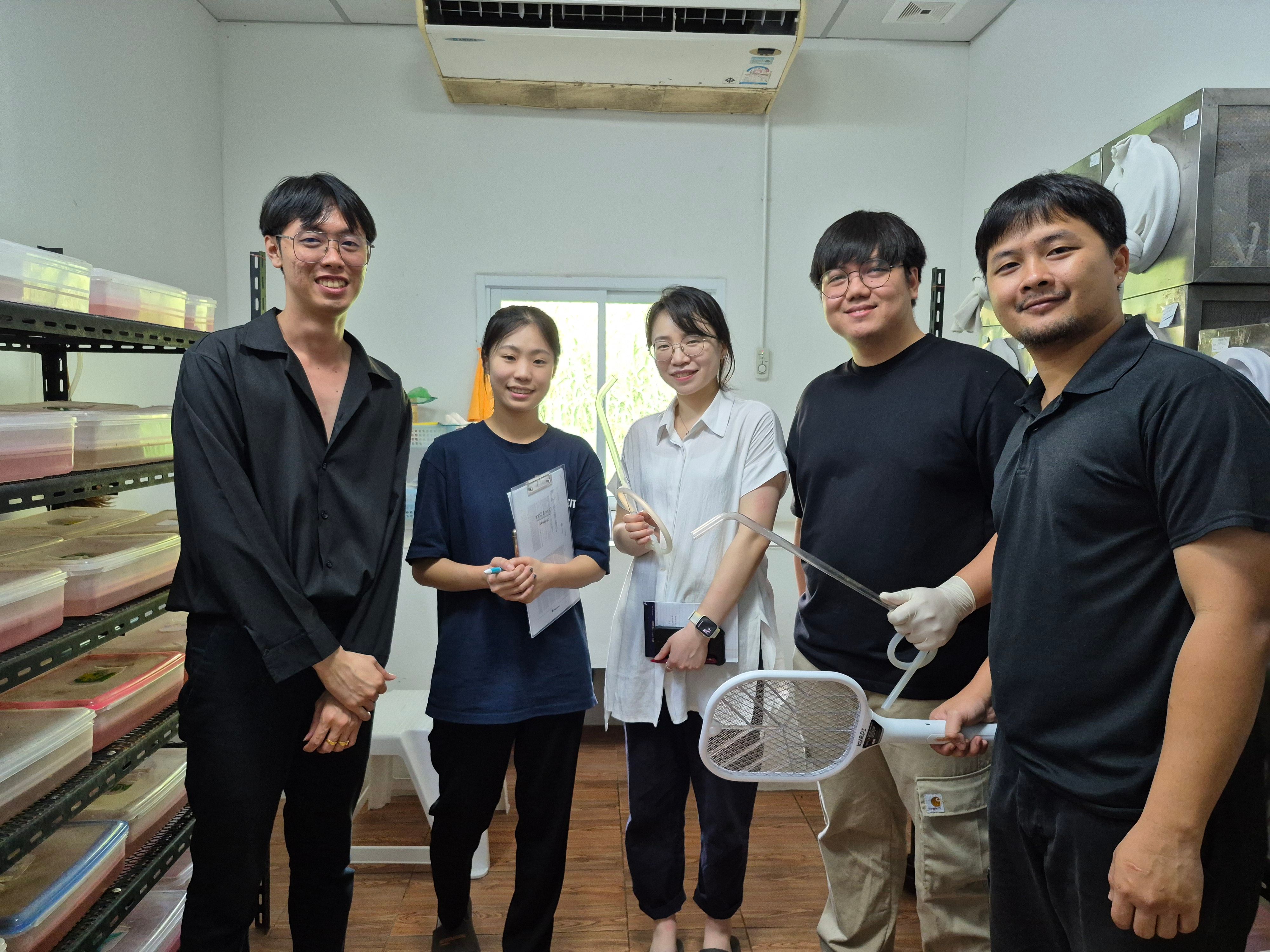 (To be continued...)
(To be continued...)
